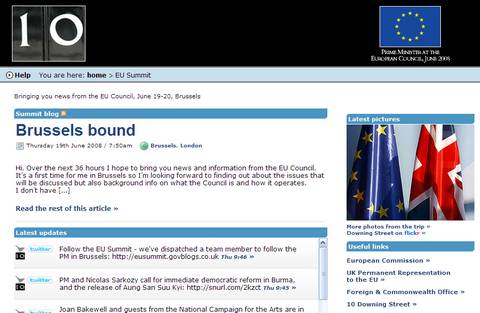LibDem MP Lynne Featherstone has an idea. She tells Liberal Conspiracy the one IT project she’d like to see from government would be (if I can paraphrase) an email-bouncing facility, where you’d send an email (for example) to [email protected] (sic), and it would automatically get forwarded to the relevant coppers. She rightly notes that sites such as WriteToThem go most of the way towards this concept… and indeed, it’s surely the sort of project that’s right up MySociety‘s street (sorry).
Personally, I think Lynne has the right idea, but takes it to the wrong conclusion. As IT projects go, what she describes is relatively straightforward. The headaches would come in terms of (a) requiring the email recipients to keep it all up to date; and (b) the extra work generated. Reading and writing emails takes time. It would be much more efficient, in most cases, to encourage self-service via the web.
The bit Lynne gets 100% right is the power of the postcode. The UK has one of the planet’s more granular postcoding systems, with each of the nation’s 1.8m individual postcodes covering on average 15 houses. In IT terms, that’s a remarkably accurate piece of geocoding data – which virtually every adult in the country knows off by heart. You can stop people in the street, ask them, and they know it. That’s a truly awesome asset. (Which is why Ireland is now adopting a similar system, despite Post Office claims they don’t need it.)
But ask any statistician about postcodes, and they’ll glare at you – citing two problems.
- Postcode boundaries were originally designed for postal use, and don’t match the boundaries of other statistical or political geographies. I can vouch for this: they don’t even differentiate neatly between England and Wales. But as the introduction of Royal Mail’s Mailsort demonstrates, the postal purpose of postcodes isn’t what it once was.
- Postcodes change. True, but… Royal Mail issues a ‘postcode update‘ every six months. Their website explains that there’s only been one significant change, affecting only Cambridge, in the last 3 years – a lifetime in IT terms. Hey, it’s not as if they’re recoding the entire nation every other week.
I’ve never seen either of these problems as insurmountable. And I’d argue that the amazing potential stemming from universal awareness of postcodes outweighs the hassle factors.
Postcodes are the country’s greatest example of the Power Of Information. I believe we would unlock significant power if we enshrined postcodes as our key national geography, asking Royal Mail to bequeath them to the nation. All statistical and political geography should be aligned with postcodes, with a commitment not to change them for 10 years, perhaps coinciding with the Census cycle. I don’t care if there are marginally more meaningful statistical boundaries; a flawed system we all understand beats a perfect system nobody understands. Oh, and it’s cheaper too.
With improved accessibility to meaningful local data would come improved accountability. A single online search would reveal who is responsible for what in your local area; and would link to appropriate data showing whether or not they were meeting their responsibilities.
The data is all out there, free of charge in almost all cases – but the chaos of conflicting geographies makes it almost impossible to work with. I don’t believe that’s a defensible position. Power to the postcodes!
Update, 8 July: There’s now a Commons Early Day Motion on freeing postcodes, attracting decent levels of support from Labour MPs. See this post for details…
 At 11:30 this morning,
At 11:30 this morning, 
 This afternoon sees the effective conclusion of Lord Darzi’s year-long (ish) review of the National Health Service, under the
This afternoon sees the effective conclusion of Lord Darzi’s year-long (ish) review of the National Health Service, under the 